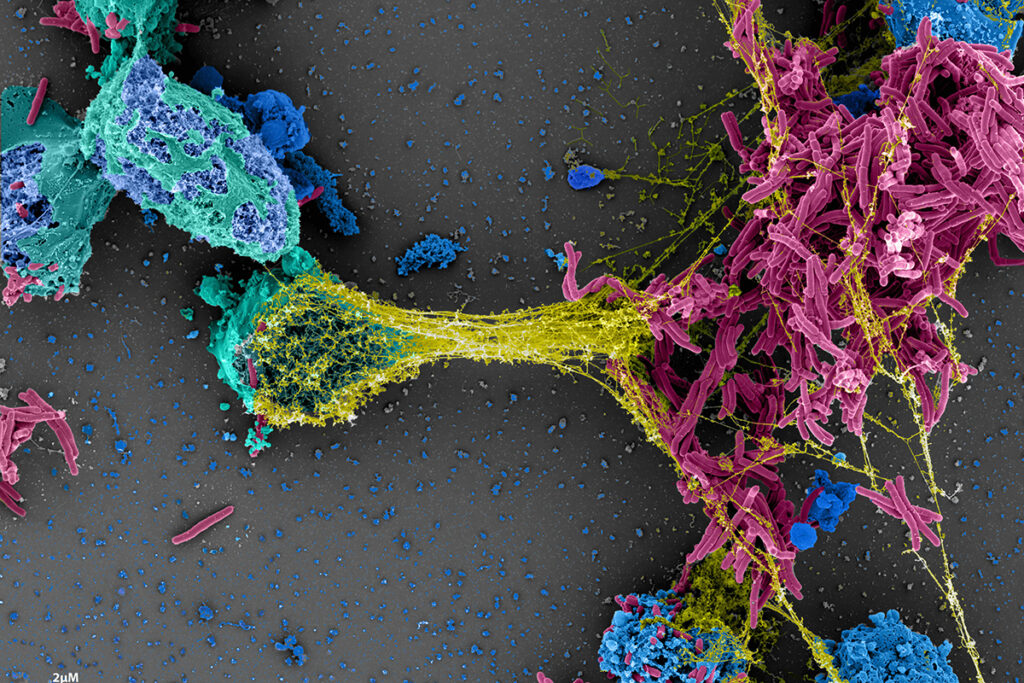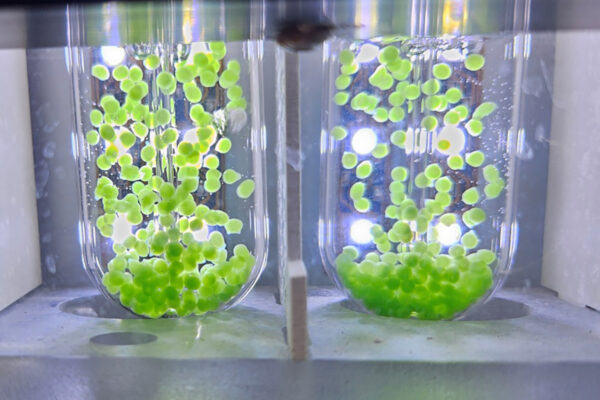Mice infected with the bacteria that cause tuberculosis (TB) fared better when treated with an experimental compound that modulates immune responses than untreated mice did, according to a study led by Christina Stallings, a professor of molecular microbiology at WashU Medicine. The findings, published Dec. 4 in Cell Host & Microbe, could pave the way toward new and more-effective therapies for TB that combine traditional antibiotics with drugs that optimize the immune response to infection.

TB, which is caused by the bacterium Mycobacterium tuberculosis, is the deadliest infectious disease in the world, killing nearly 1.3 million people in 2023 alone. The standard of care — a monthslong regimen of four antibiotic drugs — is becoming less effective as antibiotic-resistant strains of M. tuberculosis become increasingly common.
In this study, Stallings and colleagues discovered that TB bacteria thrive in the lungs by turning an aspect of the immune response that is meant to defend against infection — the production of neutrophil extracellular traps, or NETs — into an aid to their own survival and replication. The researchers identified the molecular mechanism by which the bacteria perform this molecular jujitsu, and showed that inhibiting the process results in a stronger immune response and reduced bacterial replication in the lungs of infected mice.
“Based on these findings, we have received funding from the Department of Defense to work with the TB Alliance and other global partners to develop this as a host-directed therapy to be used adjunctively with antibiotics,” Stallings said.


